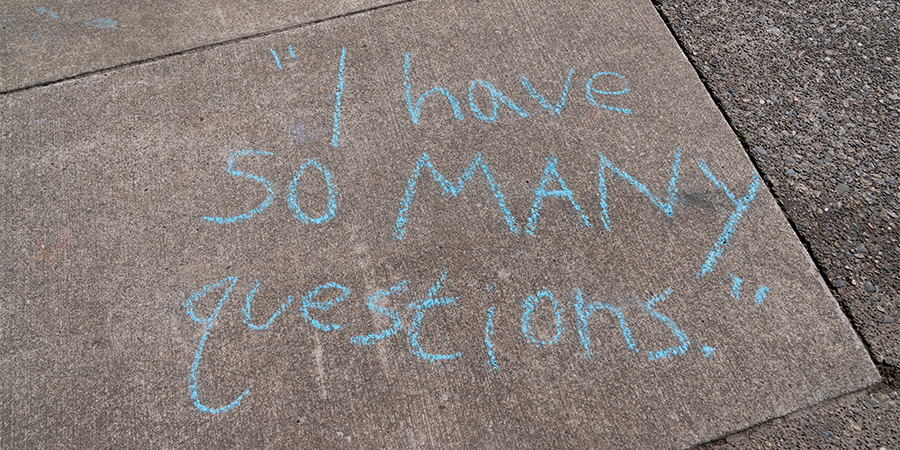
Manifest YOU — 7 Scholarship Essay Tips
by Lynne Riffenburgh, Financial Aid Counselor
Along with college applications, scholarship essays are among the most important projects for college-bound high school juniors and seniors – and, for many, one of the most intimidating.
How do you write an essay that stands out from the crowd and gives you a true shot at scoring free money for college?
The answer might surprise you. Scholarship reviewers are not looking for flawless writing, formatting and editing, although those things certainly won’t hurt. What they are really looking for is a clear picture of you and the compelling details that draw them into your story. The OSAC Scholarship Application urges, “Donors are looking for reasons why they should choose you for their scholarship award. Focus on something unique about yourself!”
Even if writing is not your thing, we’ve got some tips to help you create a memorable essay that will give reviewers the information they’re looking for and put you in the running.
Do Your Research
Don’t dive in without a plan. A quick look around the organization’s website can help you understand what the scholarship team is looking for in a candidate and how you can tailor your essay to meet their requirements and expectations. Some will even offer a “help” or FAQ section stating what they’re looking for in an answer.
For example, the Ford Family Foundation offers a Scholarship Applicant Help Guide with tips on which types of extracurricular activities to include in your application, how to write quality responses, and how they define a Ford Scholar.
Knowing exactly what reviewers are looking for offers a clear advantage, so don’t skip this vital first step.
Lay the Groundwork
Often the hardest part of writing is beginning. One way to circumvent this is to create an outline. Generally, an essay is five paragraphs, including an introduction, conclusion, and three body paragraphs. Think about the three things you can discuss in your essay that will help answer the question.
If the essay prompt is to discuss how the scholarship will help you, identify three areas:
- It will give me the opportunity to attend college
- This will in turn allow me to pursue my career goals and dreams
- I will be able to make an impact in my field/industry/community
Each of your body paragraphs will focus on one of these areas.
Once you have an outline, think about your first sentence. Hook your reader right away by sharing a common misconception or a surprising fact, describing something that relates to your chosen theme (we’ll get to that in step 3), or maybe asking a rhetorical question. Jump right into the action and let them know your essay will be intriguing!
You may want to revisit your opening again after you write your whole essay. Sometimes seeing the finished product changes what you want to emphasize in the first sentence and/or title. Or maybe you discover that a particularly brilliant sentence could be moved or restated to make a great first impression. Really strive to make that first impression captivating.
Find Your Angle
What’s the one thing you have going for you that no one else has? You’re you. The individual experiences that have shaped who you are matter. That’s what the scholarship reviewers want to know about, and that’s what will help them choose one candidate among many.
Take time to think about all the things that make you who you are. Maybe you love to sing, even though you’re terrible (hey, we can’t all be Taylor Swift), or perhaps you’re at the skate park every day. Maybe you’ve known your best friend since kindergarten, and you’re the glue that has kept your friend group together through all the highs and lows of growing up. You grew up in a small town or a big city, surrounded by siblings or an only child – there are a million little things that make you “you.”
You might not think the details of your life are all that interesting. Maybe nothing “big” has ever happened to you. But if you really give yourself time to think about how it all adds up, there’s a story there. It’s the one-of-a-kind account of how you came to be the person you are today, seeking to go to college and follow your dreams.
Brainstorm several different ways you could answer the question, until you land on the one that feels most special. It doesn’t have to be dramatic or emotional; it just needs to tell a story. Find a theme, a lesson, or a moral to center your story around. Often, a good story reveals an aspect of your personality, a character trait, or something you learned.
Examples
Take this question from the Harrington Family Foundation Oregon Community Leadership Scholarship application, for instance: “Tell us about a community-based project, initiative or experience where you demonstrated leadership, and what you learned from it. (That community could include your school, workplace, volunteer opportunity, neighborhood, etc.)”
Good
My old elementary school has a school garden, but it was neglected. I always noticed it when we passed by because it was such a mess. Finally I mentioned it to my mom, and she encouraged me to find out how I could make a difference. I reached out to the staff member in charge and learned that she was really overwhelmed and had no help. I volunteered to assist her. We met up one day and made a plan to advertise the garden, find more volunteers, and fundraise. We sent fliers home with students and quickly had plenty of volunteers to clean it up. Then we had a bake sale to fundraise for plants and soil, plus lots of people wanted to donate supplies when they found out what we were doing. Through this experience, I learned how to be a leader and really enjoyed the process.
Great
Everything I learned about teamwork, I learned from a garden. I’ve never been a very athletic person, and I didn’t stick with sports long-term. But there are a lot of opportunities in life to learn to be part of a team, and it turns out gardening is one of them.
I had noticed that my old elementary school garden was a mess of weeds and garbage. Prompted by my mom, I went in search of the person responsible for it. She was one of the teachers, and she didn’t have any help — not to mention she was wrangling a class of first-graders. She didn’t have a lot of extra time or energy, but I did.
In meeting with the teacher, we identified three key action steps: get more volunteers, clean up the garden, and raise funds for new plants and supplies. I took it from there, creating a flier to send home with students, which generated the volunteers we needed. I then organized a clean-up day and a bake sale. Soon we had fresh soil, plenty of plants, and an inviting space for students and staff to enjoy.
Through this act of leadership, I learned that all it takes to make a change is a choice. One person can get the ball rolling. Sometimes others are willing to help, but they don’t know where to begin. Being a leader means recognizing a need, and then making the decision to take action so that others can join your team.
In the second example, the writer is doing more than just answering the question. They’re showing how they demonstrated leadership in a way that draws you into the details, and they’ve used a teamwork angle in a unique way. They make it clear that they are not an athlete, and yet they were part of what they consider a somewhat atypical team.
They end with a strong statement about what it takes to create change, inspiring their readers and leaving them with the impression that this person is, indeed, a leader. The key is not to simply “tell,” but to show your readers that you are what you claim to be.
Include Personal Experiences, Anecdotes and Details
This cannot be overstated. It’s the key to catching a scholarship committee’s eye. Make it personal to you, and it will be personal for them.
Following are two examples of how a student might discuss how she chose her major. Notice how the second example offers many personal details, painting a picture of the experience that inspired this student’s dream of becoming a nurse.
Examples
Good
My grandmother died last year, and when I visited her in the hospital, I saw how well the nurses cared for her. They were really kind and empathetic. This really inspired me to become a nurse, too.
Great
When my grandmother was sick in the hospital last year, I spent time observing the nurses at work. They were tireless in their efforts to make her comfortable, offering extra pillows, special foods, a heating pad for her back, and a word of encouragement for us all. They were in and out of her room all day and all night with a smile on their faces and something to offer at all times.
I felt seen during a really difficult time in my life. I recognized my own compassion and desire to help others reflected in them. It was during those long hours in the hospital, surrounded by strangers who were helping my family get through the hardest transition of life, that I realized I wanted to be a nurse. I know it won’t be easy, but I am fully committed to the outcome, and I know how to work hard.
Answer the Question Completely
Some students may be tempted to keep their answers very concise. While it is important to ensure clarity, we encourage you to use the full word count allowed. This will enable you to tell as much as you possibly can about yourself, which is crucial to the review committee’s decision.
Once you choose your angle/theme/moral, decide how to weave it into your answer without losing the essential information or drifting off topic. After you write your essay, reread it carefully while asking yourself:
- Does it answer the question?
- Does it make sense?
- Is there anything unnecessary I should remove?
- Am I rambling?
Don’t be afraid to cut and revise. Usually your second attempt will be better than the first! Try giving your essay to someone else to read, without telling them the essay question. Can they identify the point you are trying to make?
End with Conviction
Now that you’ve got a good thing going, don’t just sign off. Leave them thinking. End with a strong statement about your future goals, the kind of person you want to be, the kind of work you want to do, or the kind of mark you want to make on your industry of choice. Make it concrete and doable, not vague.
Consider challenging the reviewers to think differently about you, your degree, or the field you hope to enter. Sometimes rewriting your first sentence in order to come full circle is a good strategy. You could even end on a question if it feels like the right move.
Examples
Good
As a nurse, I hope to help people, give them comfort, and support them during difficult times.
Great
My compassion, born out of my own experience with sickness and death, will allow me to offer comfort to my patients, while my ambition and desire for excellence will drive me to push for much-needed change within the healthcare industry. We all know it’s not a perfect system, and I, for one, am not content to leave it as it is. Shouldn’t we strive for perfection in a field that is arguably the most essential to our quality of life?
Proofread — and Ask Others to Proofread
You might be sure there are no errors. You might have read your essay over a hundred times.
That’s why you need to ask someone else to do it.
Even the best writers miss things, largely because they’ve read it a hundred times. Your eyes and your brain will gloss over the mistakes, so do yourself a big favor and ask at least two other people to read your essay for any gaps or mistakes. Not sure whom to ask? A teacher, local librarian, school counselor, parent, or youth group leader all make great resources!
Crafting a standout scholarship essay isn't just about showcasing your writing skills; it's about revealing the unique individual behind the words.
Remember, the essence of your narrative should offer a window into your world, inviting the committee to see not only the applicant but the person with dreams, aspirations, and a distinct story to tell.
Embrace this opportunity to let your authentic self shine through, knowing that your genuine voice is the most compelling aspect of your application.





